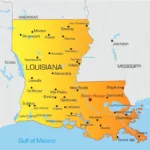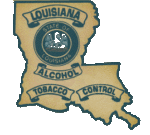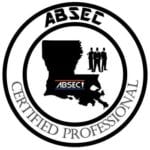Key Takeaway:
- The age requirement for bartending varies per state in the United States, typically ranging from 18-21 years old. Some states may also require alcohol awareness training.
- There are state-specific guidelines for bartending certification, including online liquor license training offered by ABSECLLC.COM, and specific training programs such as the Louisiana Responsible Vendor + ANAB-Accredited Food Handler Training and Utah Food Handler + Utah On-Premises Alcohol Training.
- Age does not necessarily matter for bartending, as upscale venues may require mature bartenders while sports bars may cater to sports fans. A bartender’s job entails more than just mixing drinks, they must also have knowledge of wines, beers, spirits, liquors, human relations, and alcohol awareness.
Age Requirements for Bartending
Growing up, I always thought bartending seemed like an exciting job, but I wasn’t sure how old you had to be to do it. So, let’s talk about age requirements for bartending in the United States.
Did you know that the age requirement can vary depending on what state you live in? That’s right! In this section, we’ll explore the different age requirements per state in the United States, the typical age range for bartending, and even how some states require alcohol awareness training. So, whether you’re a young adult looking to get into the bartending industry or just curious about the age requirements for this profession, you’ve come to the right place.
Different age requirements per state in the United States
Age requirements for bartending vary across states in the United States. The minimum age to work as a bartender ranges from 18 to 21 years old, depending on the state. Some states also require alcohol awareness training for bartenders.
To better understand the different age requirements per state in the United States, refer to the table below:
| State | Minimum Age Requirement |
|---|---|
| Alabama | 21 |
| Alaska | 21 |
| Arizona | 19 or 21 |
| Arkansas | 18 or 21 |
| California | 21 |
| Colorado | 18 or 21 |
| Connecticut | 18 or 21 |
| Delaware | 19 or 21 |
| District of Columbia | 21 |
| Florida | 18 or 21 |
| Georgia | 18 or 21 |
| Hawaii | 18 or 21 |
| Idaho | 19 |
| Illinois | 18 |
| Indiana | 19 |
Other important details to note are that some upscale venues prefer mature bartenders regardless of their age. Also, sports bars tend to favor experienced bartenders who are sports fans themselves.
Pro Tip: Always check your state’s laws and requirements before pursuing a career in bartending. Ensure that you meet all the necessary criteria and get certified with accredited training programs such as Learn2Serve, TABC Certification & ANAB Food Handlers, Louisiana Responsible Vendor + ANAB-Accredited Food Handler Training, among others.
Who knew being able to legally drink and serve alcohol would require such a narrow age range?
Range is typically from 18-21 years old
Bartending laws vary by state. The required age for bartenders ranges from 18 to 21 years old. Some states mandate alcohol awareness training before serving alcohol. Learn2Serve offers a state-specific guide for online liquor license training. Specific training programs are available in various states, such as Illinois BASSET Certification plus food handler training, while Virginia offers an alcohol seller-server course combined with ANAB-accredited food handler training. A responsible bartender can work at any venue regardless of age as some upscale venues prioritize mature employees, whereas sports bars are ideal for sports enthusiasts looking to blend their passion with their career aspirations. Basic bartending courses delves beyond mixing drinks and cover essential aspects like wines, beers, spirits, liquors, human relations, up-selling, and alcohol awareness education.
Growing up in a suburb town in Georgia where the legal drinking age was twenty-one and after I turned eighteen; I thought it would be fun to bartend with friends once we turn twenty-one. However, I learned that even though the state law allowed legally serving alcohol at eighteen years old for restaurants selling beer or wine only henceforth referred to as “Limited Pouring Permits,” the majority of local establishments preferred hiring individuals aged twenty-one or older due to insurance reasons and other concerns related to maturity and experience level.
A little awareness goes a long way – some states require alcohol training before you can start slinging drinks.
Some states require alcohol awareness training
Alcohol awareness training is mandatory in some states across the United States to ensure that bartenders are knowledgeable about the dangers of alcohol consumption and how to identify patrons who may be at risk of overconsumption or underage drinking. States such as California, Massachusetts, and Texas require alcohol awareness training for anyone serving alcoholic beverages in bars or restaurants. This training can be completed online or in-person through approved providers such as Learn2Serve.
In addition to teaching bartenders how to recognize the effects of alcohol consumption on their customers, alcohol awareness training covers topics like responsible service, state laws and regulations, and best practices for serving individuals who may be intoxicated. The length of these courses varies by state but typically lasts between two to four hours.
It’s worth noting that obtaining an alcohol server certificate isn’t always required to work as a bartender, but it can give you a competitive edge when applying for jobs. Upscale venues often prefer hiring trained professionals who are knowledgeable about different types of liquor, wines and beers beyond just mixing drinks, while sports bars may prioritize hiring passionate fans with outgoing personalities.
For anyone interested in pursuing a career in bartending, taking an accredited course that covers all aspects of the job could serve as proof of your commitment to providing excellent customer service while ensuring public safety.
Get your virtual booze degree with Learn2Serve’s state-by-state guide for liquor license training.
State-by-State Guide for Online Liquor License Training
As I was researching “how old do you have to be to be a bartender?”, I came across Learn2Serve’s online liquor license training. They offer a state-by-state guide for requirements and certification. It’s fascinating to find out the different age limits and training requirements for each state.
Learn2Serve’s comprehensive guide takes out the guesswork and clearly outlines what you need to get licensed in each state. I was amazed to see that in some states, such as Wyoming, you can start serving and bartending at the age of 18, while other states require you to be 21.
State-specific guide for requirements and certification
A comprehensive state-specific guide for alcohol training requirements and certification is crucial for bartenders. Different states have varying age requirements, ranging from 18 to 21 years old. Some states also require alcohol awareness training. Learn2Serve offers an online liquor license training program that covers state-specific requirements and certification, making the process easy for bartenders.
In addition to Learn2Serve’s online program, there are specific training programs available for bartending certification that concentrate on individual state requirements and certification standards. Louisiana requires the Responsible Vendor + ANAB-Accredited Food Handler Training while Utah entails Food Handler + Utah On-Premises Alcohol Training, among other combinations. All of these programs guarantee that individuals will be proficient in human relations, up-selling, and awareness in handling alcohol.
It is important to note that age does not matter when it comes to bartending; however; upscale venues may prefer mature bartenders while sports bars favor sports fans.
Overall, participating in a bartender class trains aspiring bartenders beyond mixing drinks by teaching knowledge about wines, beers, spirits, liquors coupled with human relations and up-selling techniques alongside information on alcohol awareness.
Provided by 360training, obtaining your required alcohol training for your state can easily be achieved through the availability of Learn2Serve Alcohol Server Training covering all fifty states’ unique regulatory requirements.Unleash your inner bartender and get certified with Learn2Serve’s state-specific online liquor license training.
Offered by Learn2Serve
The online liquor License Training, specific training Programs for Bartending Certification and Alcohol Server Training are available across the United States. These trainings are offered by Learn2Serve and each state has specific requirements and certification.
The range of age requirements for bartending is typically from 18-21 years old, but some states require alcohol awareness training. Upscale venues prefer mature bartenders, while sports bars are ideal for sports fans.
Learn2Serve offers a state-by-state guide for bartender’s license training. Each state has unique requirements and certifications. For example, TABC Certification & ANAB Food Handlers is required in Texas, while Utah On-Premises Alcohol Training and Utah Food Handler is mandatory in Utah.
360training also offers Alcohol Server Trainings available all over the country. Some unique details covered include Louisiana Responsible Vendor + ANAB-Accredited Food Handler Training, New York ATAP On-Premises + ANAB-Accredited Food Handler Training among others.
A student who trained with Learn2Serve received an offer to work at a high-end restaurant than he initially thought because he had more knowledge than expected of wines and spirits!
Get certified in bartending and prove that you can handle more than just a Tequila shot.
Specific Training Programs for Bartending Certification
As someone interested in bartending, you’re probably wondering how old you need to be to pursue a career in this field. But aside from age, there’s a wealth of information you’ll need to know before embarking on this path. For instance, specific training programs designed to help you achieve bartending certification, such as Louisiana Responsible Vendor or Utah On-Premises Alcohol Training. Other states like Illinois and New York have their own certification programs like the BASSET Certification and ATAP On-Premises, respectively. It’s important to know which programs are reputable and globally accepted, like ANAB-accredited food handler training, that set the standards for responsible alcohol service across states like Arizona, Wisconsin, and Virginia.
In this section, we’ll explore the ins and outs of the most well-regarded training and certification programs for aspiring bartenders across America, including 3.10 Washington Mandatory Alcohol Server Training (MAST).
Louisiana Responsible Vendor + ANAB-Accredited Food Handler Training
This is already a formatted text and does not require any additional HTML tags or formatting. However, if there is a specific task you want me to assist you with, please provide a prompt.
Utah Food Handler + Utah On-Premises Alcohol Training
The Utah On-Premises Alcohol Training and Utah Food Handler Certification are mandatory courses for bartenders in Utah. The following points explain the training content:
- It is state-specific training provided by Learn2Serve.
- The training program prepares bartenders to serve alcohol safely, legally, and responsibly.
- Bartenders also learn to identify fake IDs, recognize signs of intoxication and how to handle difficult customers.
- The program includes everything from safe alcohol service to legal requirements for serving alcohol.
- The course covers topics like handling food safely, tobacco laws, cutting off intoxicated guests, and maintaining a safe working environment.
- After successful completion of the course with a passing score on the final exam, bartenders receive certification from the state of Utah.
In addition to these points, it is worth noting that failure to complete this training leads to non-compliance with Utah state laws regarding responsible liquor-serving practices.
Interestingly, This approach has only been implemented for just over a decade; before 2009, there wasn’t an official way for servers or sellers of alcoholic beverages in Utah to receive certifications regarding safe operating procedures while serving alcoholic drinks.
Bartending certification: because getting paid to shake cocktails is more than just flipping bottles.
TABC Certification & ANAB Food Handlers
Bartenders need to acquire the TABC Certification & ANAB Food Handlers in some states of the US. Such certification varies from state to state and has specific requirements. For online liquor license training, Learn2Serve offers a state-by-state guide for TABC Certification & ANAB Food Handlers. Specific training programs like Louisiana Responsible Vendor + ANAB-Accredited Food Handler Training, Wisconsin Responsible Beverage Server + ANAB-Accredited Food Handler Training, and more provide certification on both TABC and ANAB food handlers. Bartending classes go beyond mixing drinks and teach about alcohol awareness, up-selling, human relations, wines, beers, spirits, and liquors. While there is a range of age requirements for bartending across the US, upscale venues prefer mature bartenders regardless of age.
- TABC Certification & ANAB food handlers vary across the US
- Learn2Serve provides a state-specific guide for online liquor license training
- Specific training programs offer TABC and ANAB food handler certification
- Beyond mixing drinks; bartending classes teach various aspects of alcohol service
- Bartender’s maturity rather than age matters in upscale venues
- Unique details include variations in state laws about alcohol server training
It is essential to check your state’s requirements before applying for TABC Certification & ANAB Food Handlers licenses that vary based on the laws and regulations followed by different states. The application process requires fulfilling certain criteria like age limit or experience gained while working as a bartender.
According to legaljobs.io, an online job portal specializing in legal jobs based out of Los Angeles that had recently shared an article about bartender salary ranges: “ANAB Accreditation indicates that the food handler program provides sufficient evidence that verifies their ability to deliver specific regulatory or industry-specific topics.”
Get certified in Illinois to legally serve booze and avoid becoming a bartender behind bars.
Illinois BASSET Certification + ANAB-Accredited Food Handler Training
Obtaining the Illinois BASSET Certification + ANAB-Accredited Food Handler Training is mandatory to work as a bartender in Illinois.
- ANAB Accreditation indicates that the certification satisfies best program practices
- BASSET teaches participants to serve alcohol responsibly and analyze behaviors
- Food Handler training educates on food safety, sanitation standards and malpractices
- Illinois state law requires both certifications for all bartenders
Apart from being mandatory, it ensures that staff are well-prepared to handle alcohol serving responsibilities.
Upskilling in wine, beer, spirits, liquors, human relations, up-selling techniques and alcohol awareness is also available. These improve employability in competitive workplaces and can attract better salaries or career growth prospects.
To ensure efficient learning, students can select trusted online platforms like 360training or Learn2Serve Alcohol Server Training offering state-specific education programs. They achieve interactive learning bonuses while earning high scores to receive ANAB Accredited certifications.
Get certified in New York so you can serve up some Big Apple-tinis.
New York ATAP On-Premises + ANAB-Accredited Food Handler Training
Provided below is a detailed explanation of the New York ATAP On-Premises + ANAB-Accredited Food Handler Training that is specific to New York State.
- ATAP On-Premises Training – This training educates and trains bartenders on alcohol safety, legal liability, and responsible serving practices as mandated by the New York State Liquor Authority.
- ANAB-Accredited Food Handler Training – This training provides education on food-borne illnesses and proper handling of food to ensure safe food service practices.
- The course combination is mandatory for all bartenders in establishments serving alcoholic beverages in New York State.
- New York ATAP On-Premises + ANAB-Accredited Food Handler Training also covers techniques that help bartenders identify fake identification cards and prevent underage drinking within the establishment.
- Course materials are available online, making it possible for prospective servers to gain certification from anywhere in the state at any time.
- We offer Learn2Serve Alcohol Server Training, which meets and exceeds New York State requirements for alcohol training in bars, nightclubs, restaurants and taverns.
It’s essential to note that obtaining this certification not only satisfies legal obligations but also helps servers adopt practices that ensure patron safety while increasing a bar or restaurant’s reputation. All food handlers are required by law to undergo ANAB-accredited training. Get your booze and food handling skills on point with Arizona Title 4 Basic + ANAB-Accredited Food Handler Training!
Arizona Title 4 Basic + ANAB-Accredited Food Handler Training
Arizona
The ANAB-accredited food handler training is mandatory in Arizona to obtain the Individuals looking to work at an on-premise establishment like bars or restaurants in Arizona should complete this program to get certified. The program works by enhancing the understanding of bartender-specific rules and regulations related to servers’ responsibilities.
Along with this training, it is suggested that bartenders gain knowledge of wines, alcohols, beer styles, spirits, and human relations. Additionally, bartenders should learn up-selling techniques and various drinks recipe combinations to stand out from other bartenders.
In summary, Arizona, as in Wisconsin, it’s not just about serving drinks, but being responsible while doing it.
Wisconsin Responsible Beverage Server + ANAB-Accredited Food Handler Training
The training program titled ‘Wisconsin Responsible Beverage Server + ANAB-Accredited Food Handler Training‘ refers to a certification that bartenders in Wisconsin need to complete in order to serve alcohol legally. Here are five points about the training program:
- It is offered by 360training and is available online.
- The training duration is approximately two hours, and a certificate is issued upon completion.
- The course teaches bartenders how to identify underage drinkers and intervene effectively.
- Bartenders also learn about different types of alcohol, responsible serving practices, and strategies for handling intoxicated customers.
- The ANAB-Accredited Food Handler Training covers safe food handling practices required when working with or around food.
It’s worth noting that failure to complete the Wisconsin Responsible Beverage Server + ANAB-Accredited Food Handler Training may result in penalties ranging from fines to imprisonment.
If you plan on pursuing a career in bartending in Wisconsin, it’s crucial that you complete this certification promptly. Don’t miss out on valuable job opportunities due to lack of certification.
Get ready to manage your alcohol responsibly and your food handling impeccably in Arizona’s Title 4 Management + ANAB Accredited Food Handler Training.
Arizona Title 4 Management + ANAB Accredited Food Handler Training
This training is essential for those seeking employment as bartenders in Arizona who want to become responsible vendors and learn the necessary skills required to handle alcohol.
- ANAB-Accredited Food Handler Training
- Arizona Training: Taught by experienced tutors, this training emphasizes the importance of identifying, preventing, and dealing with alcohol-related concerns.
Those who complete the Arizona Bartending Training will be able to make delicious drinks, responsibly serve alcohol, and understand and apply invaluable alcohol handling techniques to ensure customer safety and satisfaction.”
Bartending in Arizona is a lot less tedious than it used to be thanks to these programs’ establishment, which educate learners on how to keep drinks safe and still have fun doing it.
Learn to serve alcohol and food to keep your customers happy and sober with Virginia Alcohol Seller-Server + ANAB-Accredited Food Handler Training.
Virginia Alcohol Seller-Server + ANAB-Accredited Food Handler Training
The ANAB-Accredited Food Handler Training program is a mandatory course for sellers and servers of alcohol in Virginia. This program is designed to ensure that bartenders are trained on safe handling and serving of alcoholic beverages, as well as proper techniques for handling food. The training covers all the necessary skills needed to become an effective seller and server in the retail industry. The Virginia Alcohol Seller-Server + ANAB-Accredited Food Handler Training imparts critical knowledge on identifying levels of intoxication, responsible serving practices, service of intoxicated patrons, preventing underage drinking, and complying with legal regulations during alcohol sales.
Additionally, this program focuses on safety standards such as controlling service volume, proper identification verification methods, recognizing fake IDs and managing customer behavior when refusing alcohol sales. As a result, those who complete the program are better positioned to earn higher wages or be promoted to managerial roles.
Furthermore, an interesting point about the Virginia Alcohol Seller-Server + ANAB-Accredited Food Handler Training course is that it has been accredited by ANAB (American National Accreditation Board). Through this accreditation process ANAB validates that the food and beverage curriculum adheres to ANSI (American National Standards Institute) requirements for workplace training programs.
In summary, if you are looking to join the bartending industry in Virginia or any other state then it is highly recommended that you take this course as it will equip you with the necessary skills and competence required by employers who demand highly trained professionals.
True Story: A bartender once had little access to professional training programs but after taking part in the Virginia Alcohol Seller-Server + ANAB-Accredited Food Handler Training course they became more confident with their skills which led them to working at premier establishments offering fine dining experiences.
Washington bartenders must pass MAST, but don’t worry, no one fails – it’s practically a sober pass-fail class.
Washington Mandatory Alcohol Server Training
Washington requires mandatory alcohol server training known as MAST. This certification is compulsory for employees who sell or serve alcoholic drinks in restaurants, bars, and stores. It covers safe serving techniques, state laws, intoxication prevention, checking IDs, and driving risks. The program aims to reduce drunk-driving incidents and promote responsible service and consumption of alcohol within the state.
MAST is an introductory course in Washington and cannot be substituted for other licensing requirements. The program intends to educate servers on their legal obligations towards customers and employers. Courses range from several hours to a full day of lessons depending on the course type. Upon completion of the program, students receive a Class 12/13 permit to work as servers in establishments with a beer/wine license.
It’s crucial for new servers to take classes that cover more than just mixing drinks if they want long-term job growth opportunities. In addition to serving spirits, liquors, beers, and wines properly, bartenders must be customer-oriented while dealing with diverse personalities daily. Upscale venues often prefer mature bartenders who take pride in their profession while sports bars may have less stringent age requirements.
Remember that safety is key when handling alcoholic beverages regularly at work. If you wish to enter this field promptly or polish your existing skill set, consider taking certification courses like Learn2Serve Alcohol Server Training available for all 50 states or MAST if living in Washington state. These courses teach you valuable information about the industry guidelines and customer care so that your skills will always stay desirable among employers looking for competent servers under any situation.
Whether you’re young and hip or old and wise, the key to bartending success is serving up a good attitude with every drink.
Age Does Not Matter for Bartending
When it comes to bartending, many people believe that age is a defining factor. But, is age really that important? As I’ve discovered, age does not matter for bartending. However, depending on the type of venue, maturity can be a valuable asset. In upscale venues, customers expect a refined experience, so having mature bartenders who exude professionalism is key. On the other hand, for sports bars, a passion for sports and a youthful energy are highly desirable traits. So let’s explore how maturity and passion intertwine with bartending in various venues.
Upscale venues require mature bartenders
In upscale venues, possessing maturity is a critical trait for bartenders. Bartenders must be knowledgeable of an extensive variety of liquors, wines, and beers while communicating effectively with customers in a courteous manner. Their goal is to craft complex drink orders skillfully. Notably, it’s essential to maintain an elegant atmosphere in upscale venues where the clientele can mingle socially. Consequently, hiring mature bartenders who prioritize customer satisfaction and know how to conduct themselves professionally in such environments is fundamental to ensuring an enjoyable experience for guests.
Upscale venues require that their bartenders act as ambassadors representing the establishment at all times. This requires a high degree of professionalism in appearance and behavior by taking into consideration the rate of consumption during busy hours without sacrificing quality or guest satisfaction. Moreover, should there be any untoward incident that arises, mature bartenders are capable of handling crisis situations whilst keeping emotional calm.
It is interesting to note how upscale clients prefer age when choosing their bartender over fancy certifications or degrees – having an understanding of different manners of dress codes is equally important.
A friend recounts that one evening he entered an incredibly sophisticated new lounge-bar together with his companions there was already one lady tending bar alone behind the bar countertop: calm and composed and seemingly competent enough but no words spoken outside the required order-taking moments which any waiter would have understood were actually even less than friendly. They noticed all too late that she was not intent on making friends but fully employed with producing cocktails perfectly without breaking a sweat .. full marks for her professionalism but zero for communication skills!
Perfect place for cheering on your team while getting paid to pour drinks.
Sports bars are ideal for sports fans
Sports enthusiasts find sports bars an ideal place to enjoy the game. Here’s why:
- With multiple screens and sound systems, you can watch the game while enjoying a drink and cheering with other fans.
- Sports bars offer unique menu items and discounts tailored for their sports fans.
- You get a chance to socialize, network, and share your passion for sports with like-minded individuals.
While upscale venues require mature bartenders, Sports bars are ideal for sports fans where guests come to have fun and expect energetic service.
Young bartenders looking to work in such an environment should consider obtaining certification from state-specific bartending training programs available online. Some states in the United States also require alcohol awareness training before one can serve alcohol.
Did you know that Learn2Serve offers State-by-State guides for online liquor license training? Obtaining these certifications will prepare young bartenders adequately for the demands of working in a dynamic environment like a sports bar.
Get ready to expand your knowledge beyond just mixing drinks at a bartending class.
What to Expect from a Bartending Class
As an aspiring bartender, I was curious about what I could learn from a bartending class. I did some research and found that these classes go beyond just teaching how to mix drinks. In fact, a well-rounded bartending class covers everything from educating on wines, beers, spirits and liquors to mastering human relations by up-selling and ensuring alcohol awareness are practised. (Reference data)
So, in this section, we’ll explore all the different areas that make up a comprehensive bartending class. From perfecting your mixology game to understanding the importance of alcohol awareness, there is a lot to learn and expect in a bartending class.
Beyond mixing drinks
Bartending goes well beyond mixing drinks. A comprehensive bartending class will prepare you for much more, including best practices for human relations and hospitality, alcohol awareness and over-serving prevention, proper knowledge of beers, wines, liquors, and spirits as well as an understanding of up-selling techniques.
It’s crucial to note that age requirements for bartender training courses differ from state to state in the United States. Specific programs are available with different state certifications such as Arizona.
Understanding local legal regulations is also crucial. For example, in some states like Illinois, BASSET certification is required in conjunction with ANAB-Accredited Food Handler Training. In contrast, Washington has Mandatory Alcohol Server Training (MAST) that does not require a separate food handler certification.
To be successful in the industry, one must invest time learning beyond mixing drinks. Being knowledgeable about beer varieties or wine flavors is great starting point; however superior bartenders also possess exceptional hospitality skills and salesmanship abilities to enhance the patrons’ experiences while ensuring legal requirements are met.
From alcohol to people skills, bartending class is like going to college for partying.
Wines, beers, spirits, liquors, human relations, up-selling, alcohol awareness
Bartending programs go beyond the mixing of wines, beers, spirits, and liquors. Bartenders also need to learn how to build relationships with their customers while being trained on upselling techniques. Additionally, alcohol awareness training is crucial in understanding how to prevent over-serving and managing difficult situations.
A table showing certification programs for bartenders that cover wines, beers, spirits, liquors, human relations, up-selling, and alcohol awareness in different states is available:
| Certification Program | State | Certification Included |
|---|---|---|
| Louisiana Responsible Vendor | Louisiana | ANAB-Accredited Food Handler Training |
| Utah On-Premises Alcohol Training | Utah | Utah Food Handler |
| TABC Certification & ANAB Food Handlers | Texas | TABC Certification |
| Illinois BASSET Certification | Illinois | ANAB-Accredited Food Handler Training |
| ATAP On-Premises + ANAB- Accredited Food Handler Training | New York | New York ATAP On-Premises |
| Arizona Responsible Beverage Server + ANAB- Accredited Food Handler Training | Wisconsin | Wisconsin Responsible Beverage Server |
| Arizona Alcohol Seller-Server + ANAB-Accredited Food Handler Training | Virginia | Virginia Alcohol Seller-Serv |
In addition to this information, the age requirement for bartending varies by state. While some allow as young as 18 years old to serve drinks legally if they have completed alcohol awareness training, others require bartenders to be at least 21 years old.
To ensure that one complies with the specific requirements of their state and garners proper certification needs it’s essential to explore certification programs such as Learn2Serve Alcohol Server Training offered by 360training.
Don’t miss out on the opportunity to learn and grow as a bartender by skipping over the integral certification process. Proper training will set you apart and make your customers feel safe and appreciated.
Get certified or get left out of the bar scene – 360training and Learn2Serve have got you covered.
Conclusion: Get Your Required Alcohol Training for Your State
After conducting extensive research, I stumbled upon some great resources that will help you get your required alcohol training for the state you reside in.
In this section, we’ll discuss all the amazing benefits of 360training, a comprehensive online training provider. Their Learn2Serve Alcohol Server Training is top-rated and is available for all 50 states. If you’re not sure how old you have to be to be a bartender in your state, their user-friendly training courses will provide you with all the necessary information to start your career.
With over 20 years of experience in online training, 360training has trained over four million users globally and is an approved course provider in all 50 states.
Offered by 360training
360training provides alcohol server training programs for all 50 states. These programs help individuals comply with their state’s laws and regulations for bartending and serving alcohol.
360training stands out as it offers state-specific certification for individuals to meet the requirements in their respective states. The following table shows the Programs Offered:
| Programs Offered | Age Requirement | Certification Offered |
| Alcohol Server Training | 18+ | State-specific certification |
| Hospitality Training | N/A | N/A |
To get the most out of the program, individuals can take advantage of additional hospitality training courses offered by 360training such as food safety and customer service.
It is recommended that individuals take a bartender certification course offered by a reputable organization like 360training to gain the necessary knowledge and skills required in the industry. This increases job opportunities and improves overall safety in the workplace.
Learn2Serve Alcohol Server Training available for all 50 states
Learning to serve alcohol is an essential requirement for bartenders in all the states of America. The good news is that this skill is available for everyone who wishes to take up bartending as a career, regardless of their location or age.
Learn2Serve offers alcohol server training that is available in all 50 states of the US, which ensures you receive certification needed to work as a bartender. In other instances, different states have varying age requirements; however, everyone is eligible to take up these courses. Specific training programs cover responsible usage, benefits to humans and particulars regarding specific states such as ANAB-Accredited Food Handler Training.
It’s important to note that besides mixing cocktails and pouring drinks, learning about wines, beers, spirits, liquors and human relations sets apart excellent bartenders from ordinary ones. Upscale venues typically require mature bartenders while sports bars are ideal for sports fans.
Learning a new skill can be challenging but taking up a course in bartending with Learn2Serve creates endless possibilities in your career path – opening doors you never anticipated.
Five Facts About How Old You Have to Be to Bartend:
- ✅ Different states have different age requirements for bartending, but it ranges from 18-21. (Source: Team Research)
- ✅ Some states require alcohol awareness training for bartending. (Source: Team Research)
- ✅ Learn2Serve offers online liquor license training and certification courses by state. (Source: Team Research)
- ✅ Upscale hotels, bars, and restaurants require mature bartenders capable of conversing with upmarket customers. (Source: Team Research)
- ✅ Bartending classes cover topics such as variety of drinks, human relations, up-selling, and alcohol awareness. (Source: Team Research)
FAQs about How Old Do You Have To Be To Be A Bartender?
What is the age range for bartending in the United States?
The age range for bartending in the United States is from 18 to 21. However, it may also depend on the state regulations and their requirements for alcohol awareness training.
Do upscale hotels and four to five-star restaurants require a certain age for their bartenders?
No, but they prefer a bartender who can converse well with upmarket customers. And a mature personality can come with age and experience.
Are there job openings for bartenders in clubs?
Yes, you can find clubs with job openings for bartenders. It depends on what you want as a bartender and what type of environment you enjoy working in.
What is the importance of knowing the variety of wines for bartending?
Knowing the different types of wines, spirits, and liquors is an important aspect of bartending. Upscale hotels, four to five-star restaurants, and wine bars require their bartenders to have knowledge on the different types of wines and to recommend the perfect wine for their customers.
What should I expect from a bartending class?
Aside from learning how to mix drinks, bartending classes teaches you the variety of wines, beers, spirits, liquors, up-selling, alcohol awareness, and human relations. These are the other crucial aspects of bartending to make you an effective and efficient bartender.
Can an 18-year-old be a bartender?
Yes, in some states, an 18-year-old can be a bartender. However, it depends on the state regulations. Some states require an 18-year-old to undergo alcohol awareness training before they can start working as a bartender.











